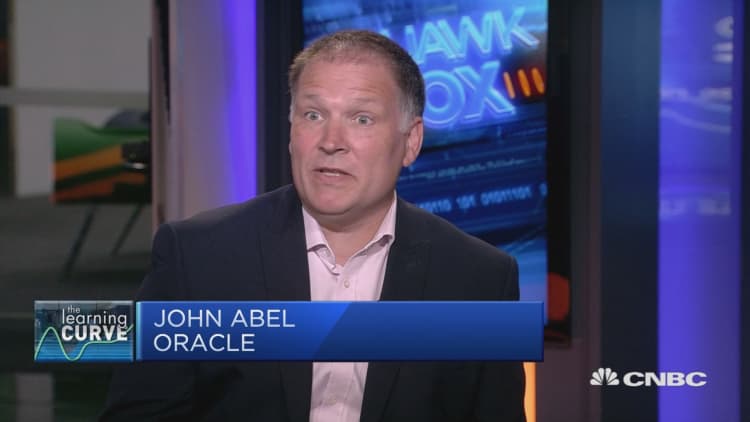Creativity is critical for workers looking to protect themselves from being replaced by new technologies and automation, a tech expert told CNBC.
Speaking to CNBC's "Squawk Box Europe" on Tuesday, John Abel, vice president of cloud and innovation at Oracle, said the notion of regularly reskilling employees to adapt to new systems was becoming less effective.
Oracle is a U.S. firm specializing in emerging business technologies and software.
"Reskilling is a here and now (solution), then we're done," Abel said.
"You need to bring out — in all of your workforce — creative skills, because as we know with the modernization of IT, and specifically with A.I. (artificial intelligence) machine learning, anything that's a logical processing job will be at some point replaced, so what we're asking our staff to do is use their creative skills across all age groups (in) the workplace because that's the unique advantage."

Last year, the World Economic Forum (WEF) named creativity as the third most important skill employees needed to thrive in 2020 as automation continues to infiltrate the workplace. Complex problem solving and critical thinking were the WEF's first and second most important skills.
Abel noted that for previous generations, the skillset they gained in education could last for their entire career — but he urged companies and workers to realize this was no longer the case.
"Now the average skill will last no more than six years, so what you're looking at is agility, flexibility and diversity," he said. "That creative bit is so critical to the next generation and actually to the current generation. Age is something we look at, but I think what we should do is start looking at the individuals and start thinking: what capability can they bring to the business and how do we make them creative, not industrial?"
"We don't want them to be going through a process," he added. "What we want them to do is break that mold to be creative, (and) that's what our customers want."

Speaking to CNBC's "Street Signs Europe" on Monday, John Fallon, CEO of Pearson — the world's largest educational publisher — said the capabilities most insulated from automation were "uniquely human skills" like creativity, persuasion and empathy.
The UN's Conference on Trade and Development (UNCTAD) defines creative industries as those "at the crossroads of the arts, culture, business and technology." Under the UN definition, jobs in the creative economy could include roles in publishing, video game development, advertising or graphic design.
In January, a report published by UNCTAD showed that the global creative economy doubled in value between 2002 and 2015 to be worth $509 billion.

